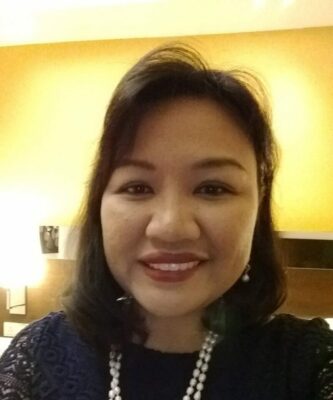Meet our researcher in Scotland – interview with Senia Febrica

Senia Febrica
Today we talk to Dr Senia Febrica, the Knowledge Exchange Associate at the Hub. Her research sits at the intersection between international relations, security studies, and the study of international organisations. Specifically, it focuses on maritime security cooperation and the particular challenges it poses in the Southeast Asia region.
Why did you become interested in researching the ocean?
I come from a seafaring and fishermen family in Indonesia. Before my father changed his profession to be a seafarer, he was a fishermen working in Siau, a small outlying island located close to the border between Indonesia and the Philippines, just like many generations before him. I learned the life-threatening hazards of these professions – the risks of accidents, casualties, and attacks from sea robbers and illegal fishers since I was young. As these problems affected my nearest and dearest the problems of cooperation dealing with illicit activities at sea and their implications on other stakeholders motivate me to do research in this area.
What major concerns do you have related to the oceans?
My deepest concern is the lack of cooperation to deal with maritime crimes particularly in areas affected by maritime disputes such as the South China Sea. There has been an increase in the level of attacks and the degree of violence used by pirates and illegal fishers against fisher folks and seafarers in areas affected by maritime disputes. It is also common that in areas affected by disputes marine resources have been exploited to the brink of extinction. The political nature of these conflicts has pushed issues concerning ocean governance and sustainable use of marine resources to the background.
How would you describe your current research in three sentences?
My research focuses on finding cooperation mechanisms to deal with maritime crimes.
Learning what factors can entice small and middle power states to cooperate.
Understanding the contributions of non-state stakeholders in international cooperation to address maritime crimes.
How does your work help us to re-think the current ocean issues/challenges?
The current studies of international cooperation tend to focus on great-power bargaining. My work aims to understand the role of small and middle power states and non-state stakeholders in facilitating cooperation.
My research also looks at the linkages between the problems on land such as poverty and lack of employment, and the challenges that take place at the sea.
What are the aspects of working in a collaborative environment such as the One Ocean Hub that you value the most?
I value the inter-disciplinary nature of the One Ocean Hub. It enables me to learn from researchers working in various disciplines such as science, law, and sociology disciplines. It is also interesting to gain insights about ocean governance approaches implemented in different countries and challenges surrounding them.
What keeps you going/motivates you in your research? (or more formal: what motivates you?)
The strength of the fisherfolks and seafarers that I meet. They have endured significant challenges due to severe weather condition, hazardous working conditions, financial constraints, poor governance, and lack of enforcement at sea and somehow they always find a way to bounce back.
The One Ocean Hub aims to transform ocean governance. How does your research contribute to it?
I hope my research can contribute by bringing to our attention the linkages between ocean and land governance because what happen at sea often mirrors the lack of governance on land.